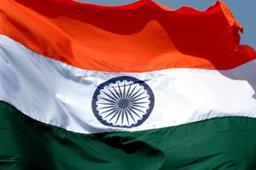 The introduction of Advance Pricing Agreements in India to minimise the possibilities of huge adjustments in the tax liability of companies with cross-border transactions is being seen as a major step forward in transfer pricing regulation.
The introduction of Advance Pricing Agreements in India to minimise the possibilities of huge adjustments in the tax liability of companies with cross-border transactions is being seen as a major step forward in transfer pricing regulation.
Sean F Foley, global leader of KPMG Transfer Pricing Services, who has also been an APA tax administrator for the American government agency, tells Business Standard companies are optimistic but cautious about the development.
Edited excerpts:
How do you see the developments here in the past two-three years and the upcoming APA mechanism?
The important story about the Indian transfer mechanism is its very public and it's on the table.
We see numbers.
They talk about $10 billion of adjustments.
We understand that over half the transfer pricing audits wind up with adjustments.
With the US clients I am working with, all of them tell us about the issues with transfer pricing in India.
There are many data points which tell you that India is perhaps the most difficult transfer pricing destination on the globe at this point in time.
So, this must be a major concern for companies?
Obviously, it being a very important country for cross-border trade, difficulty in transfer pricing is very important.
Talking about the APA, its an alternative dispute resolution mechanism.
More than 30 governments across the world have adopted this way, in which both the tax payers and the tax administration can reach a resolution involving huge revenue.
With India joining the global stage, there is expectation that difficult large transfer pricing cases could be resolved with no double tax and with the ability to stop this endless cycle of file your return, get audited, get adjustment and wind up in court.
You have been APA director in the US Internal Revenue Service. How do you see the experience in the US and, going forward, in India?
In the US, learning from the APA process has been very helpful for the government. Many of these experiences could be helpful in the Indian context.
Tax
So, there has to be an understanding and compromise from both sides.
What has been the experience in other countries -- Japan, China, European nations?
Japan has the largest number of APAs. So, they clearly have one of the most successful programmes.
They have the most APAs going with China.
They have adopted many of the processes from the US but in many ways they also do it in their own way.
The important thing is that APA is not a one-off. Every APA is different around the world but there are some common factors.
The whole process of reaching to APAs is almost the same everywhere.
I would expect the Indian government, as they open up their doors to accept people in the APA process, will have these experiences and, hopefully, will be taking big cases off the table, so that you don't end up in litigation for 15 years.
You have talked to the clients who would be ultimately getting into these APAs. What is the general expectation from the new APA regime in India?
There is cautious optimism.
Many companies are deciding whether they want to be first in the door.
Many are waiting.
They want to see how the first couple of APAs progress.
And, when the final regulations are out and doors are opened, a number of companies would begin the process.
We have seen in the US, the important aspect is the companies coming ahead and sitting across the table with revenue authorities, seeing how they react.
It's very effective for the companies to see it directly.
Based on their experience, they would decide on going forward for APAs.
APA regulations are not yet out but there are indications on the fee structure. What indication have you got and how do these compare with other countries?
Most countries don't have fees.
The US does, Canada does.
The fees I have seen in the draft norms in India are very consistent with the US and it should not be a bottleneck.
The exposure here is so dramatic and the cost of going through litigation so high that the investment in fees is quite reasonable.











